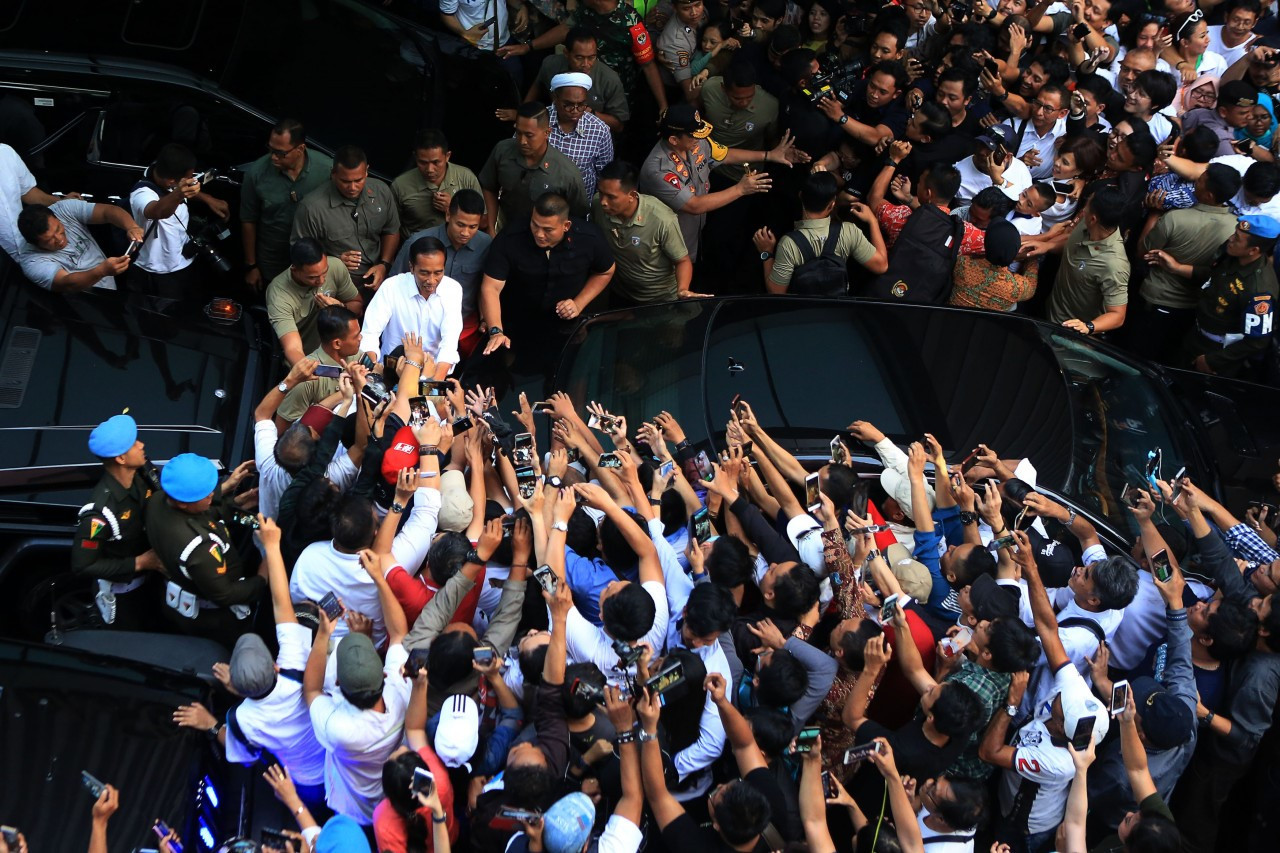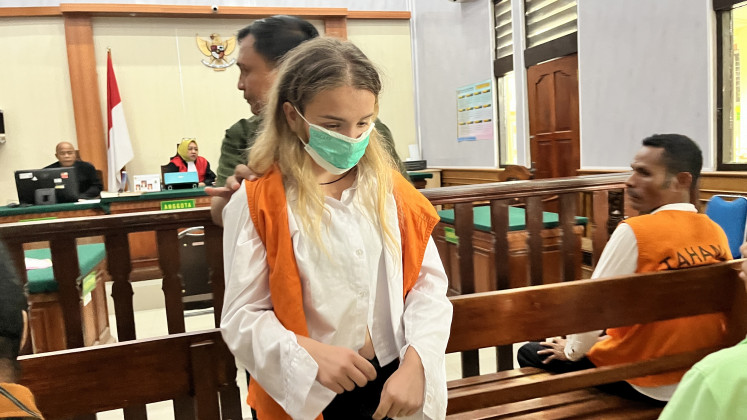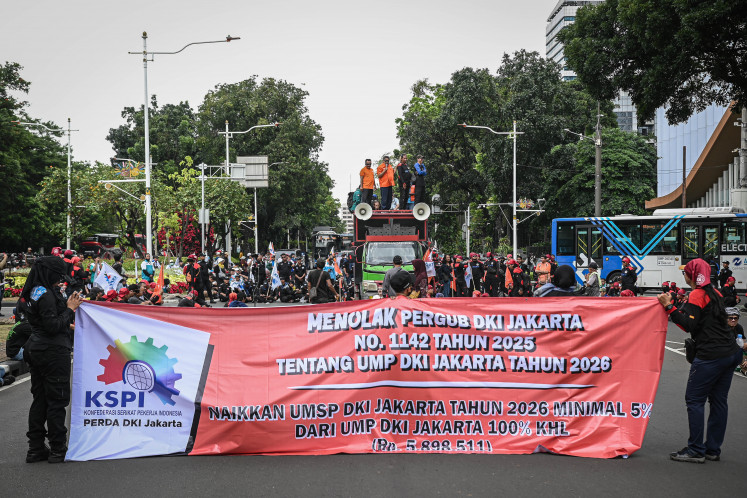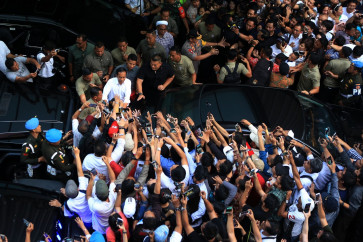Popular Reads
Top Results
Can't find what you're looking for?
View all search resultsPopular Reads
Top Results
Can't find what you're looking for?
View all search resultsHow does the 2019 vote inform the 2024 elections?
With President Jokowi’s era slowly coming to a close, understanding what is at stake in the 2024 general elections will be crucial for voters across the political spectrum.
Change text size
Gift Premium Articles
to Anyone
 President Joko “Jokowi” Widodo greets his supporters after speaking to the press at the Djakarta Theater in Central Jakarta on April 17, 2019. The incumbent won his reelection bid, although his rival Prabowo Subianto contested the results through the courts before they eventually buried the hatchet. (JP/Seto Wardhana)
President Joko “Jokowi” Widodo greets his supporters after speaking to the press at the Djakarta Theater in Central Jakarta on April 17, 2019. The incumbent won his reelection bid, although his rival Prabowo Subianto contested the results through the courts before they eventually buried the hatchet. (JP/Seto Wardhana)

With President Joko “Jokowi” Widodo’s era slowly coming to a close, and the next opportunity to cast one’s vote already less than a year away, understanding elections in the history of contemporary Indonesia will be crucial for voters across the political spectrum, as will knowing what is at stake in the 2024 general elections.
Jokowi is in the midst of his second term in office, which means he is unable to stand for reelection. Over the course of his two terms so far, the incumbent leader has enjoyed steady public support and, with his big-tent ruling coalition in the legislature, ample political clout to be able to follow through on his policymaking.
How this came about and what it says about Indonesian electoral politics could prove useful for would-be voters in staying informed for next year’s race.
In a repeat of the 2014 presidential election, Jokowi won reelection against his then-rival Prabowo Subianto on Apr. 17, 2019. He won 55.5 percent of the vote to Prabowo’s 44.5 percent, with the incumbent’s 85 million votes breaking the 73 million votes record set by former president Susilo Bambang Yudhoyono in 2009.
Compared with the 2014 race, Jokowi had the backing of the majority of political parties in the House of Representatives going into his 2019 reelection bid.
The Indonesian Democratic Party of Struggle (PDI-P), of which Jokowi is a member, the Golkar Party, the United Development Party (PPP), Hanura, the NasDem Party and the National Awakening Party (PKB) all backed the pairing of President Jokowi and his choice for vice president, senior Muslim cleric Ma’ruf Amin, a former chairman of the Indonesian Ulema Council (MUI).

Together, the Jokowi coalition made up 60 percent of the seats in the House.

















